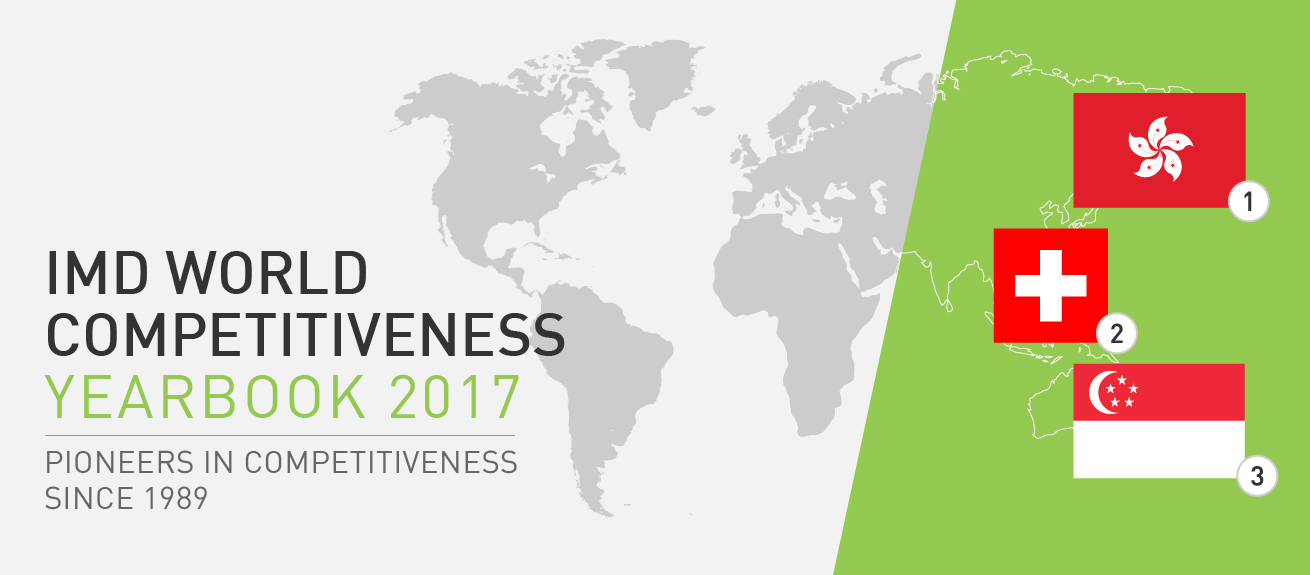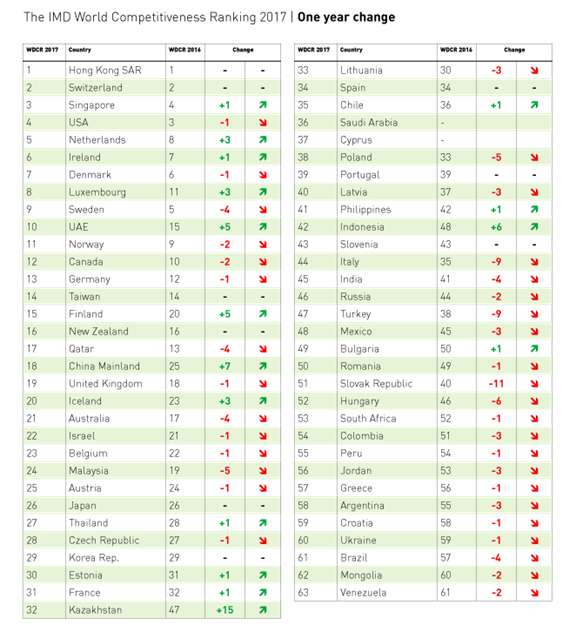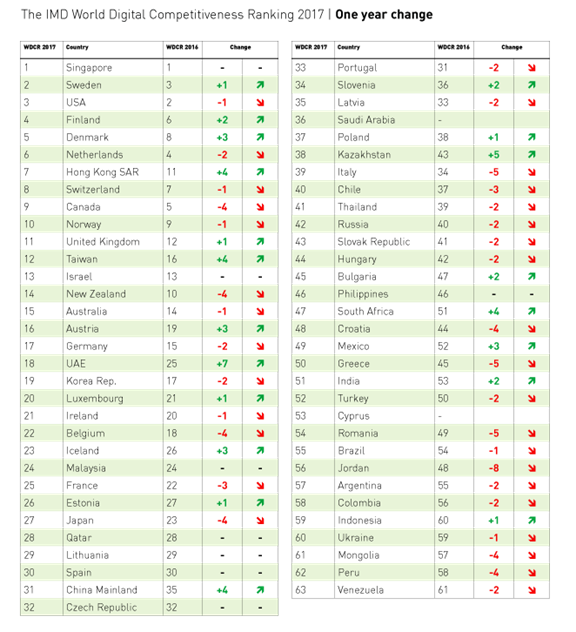
The world’s most competitive countries continue to jostle for the top positions in the 2017 IMD World Competitiveness Yearbook, as the USA is pushed out of the top three.
Hong Kong has consolidated its dominance of the annual rankings compiled by the IMD World Competitiveness Center, taking the top spot for the second year. Switzerland and Singapore came in second and third, with the USA ranking fourth, its lowest position in five years and down from third last year. The Netherlands completed the top five, jumping up from eighth last year.
The IMD World Competitiveness Center, a research group at IMD business school in Switzerland, has published the rankings every year since 1989. It compiles them using 260 indicators, about two thirds of which come from ‘hard’ data such as national employment and trade statistics; and a third from more than 6,250 responses to an Executive Opinion Survey that measures the business perception of issues such as corruption, environmental concerns and quality of life. This year 63 countries are ranked with Cyprus and Saudi Arabia making their first appearance.
Professor Arturo Bris, Director of the IMD World Competitiveness Center, said the indicators that stood out among the most improved countries are related to government and business efficiency as well as productivity.
“These countries have maintained a business-friendly environment that encourages openness and productivity,” he said. “If you look at China, its improvement of seven places to 18th can be traced to its dedication to international trade. This continues to drive the economy and the improvement in government and business efficiency.”
The bottom of the table, meanwhile, is largely occupied by countries experiencing political and economic upheaval. “You would expect to see countries such as Ukraine (60), Brazil (61) and Venezuela (63) here because you read about their political issues in the news. These issues are at the root of poor government efficiency which diminishes their place in the rankings,” said Bris.

Introducing the Digital Competitiveness Ranking
For the first time this year, the IMD World Competitiveness Center is publishing a separate report ranking countries’ digital competitiveness. Indicators for technology and scientific infrastructure are already included in the overall rankings. The new Digital Competitiveness Ranking, however, introduces several new criteria to measure countries’ ability to adopt and explore digital technologies leading to transformation in government practices, business models and society in general.
At the top of the ranking is Singapore, followed by Sweden, the USA, Finland and Denmark. “There is no doubt that supportive and inclusive government institutions help technological innovation,” said Bris.
“Singapore and Sweden have developed regulation that takes advantage of the talent they have by adopting, for instance, regulation that facilitates the inflow of overseas talent which complements the locally available pool. The US invests more in developing its scientific concentration and generating ideas but the country has a history of government support for technological innovation. This shows that in digitally competitive countries, the government must facilitate the adoption of new technologies.”
Many of the top 10 digitally competitive countries are also found at the top of the overall rankings, with some exceptions. Luxembourg, number eight in the overall list, ranks only 20th in the digital list. Finland is 15th in the overall list, but 4th in the digital ranking. “Of paramount importance in the digital ranking are issues related to how adaptive and agile economies are when faced with technological change,” Bris said.
The bottom five are Indonesia, Ukraine, Mongolia, Peru and Venezuela. Bris said: “One thing the results highlight is that these countries not only have low rankings in terms of talent but they don’t invest in developing whatever talent they have.”
“There is a relation between the lack of talent and training with a lack of business agility,” he added. “Education and knowledge production are the key.”



